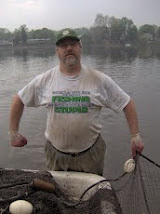ST JOHN’S ANTIGUA
I finally
got a glimpse of Antigua on our final day. We had traveled to this lesser
Antilles island for the all-inclusive, adults only, couples only Sandals Grande
Antigua for a casual week of lolling about the resort. Our only getaways “off
campus” were the scuba diving which did take a good portion of many mornings
and a number of afternoons. Early on we opted for the diving and decided
against sight-seeing around the island. Available excursions though included zip
lining through the forest, horse riding along the beach and 4x4 tours around
the island, all at an additional cost. With the diving taking a large part of
our days we would have spent little time comparatively at the resort if we did
explore, leaving us less time to drink free rum drinks!
WHAT’S WRONG WITH THIS PICTURE?
The final
full day though Janet went on a morning dive of a depth for which I was not yet
certified and I could not go. I actually was fine with this and caught a ride
into St. John’s the capital of the nation of Antigua and Barbuda for a quick
run around shopping spree and to get the feeling of the island off the resort.
CANE vs BEACH
In the
1950’s the once thriving sugar cane industry on Antigua, dating back to the
1600’s was foundering, but the economy soon became tied to tourism. During the
plantation days of sugar cane all commerce was inland and the two ports of the
island, St. John’s and Falmouth, were heavily fortified by the British to
protect their interests from the French and marauding Caribbean pirates. When Antigua
and Barbuda gained their independence from the United Kingdom in the early 80’s
the move towards tourism was already in full swing.
Everything
is now along the gleaming coast. That’s where all the new roads, marinas,
villas and buildings are located. Venture away from the bustle of the touristed
white sands and coral reefs and the interior is quiet, the roads devolve to
rutted tracks. If so inclined, one can tour the relics of once proud
plantations like Betty’s Hope, the first large-scale sugar cane plantation on
Antigua. Started around 1650 Betty’s Hope first used wind mills to extract
sugar cane juice and eventually moving to steam engines.
If so
inclined, one can venture to the only clothing optional beach on Antigua, Hawksbill
Bay, just a short ride from the harbor at St. John’s, the main port of entry today
on the island.
If so
inclined, one can take a Segway tour along some beach or ride horses. I had half
a day so I went shopping.
FLEET’S IN!
St. John’s
is really just a mile or two from Sandals, but I got a mini-van arranged
through the resort. If I were really, really, cheap, I could have walked it,
but the $15 USD seemed worth it. The van left the resort around 10 am and was
to return by 12:30, so it was just a quick trip into the port area. I shared
the ride with a young couple from Texas. It was their second trip in two years
to this same Sandals. They headed straight to the casino while I melted into
the tumult of the colorful Heritage Quay. Two massive cruise ships were docked in
the port and her patrons had spilled out into the duty-free shopping area. Local
men with placards offering taxi rides waited for a willing nod. Some Antiguans
tried to steer people into restaurants and shops, but it was very understated,
despite the commotion. Cops were
everywhere. Antigua is generally considered a safe place, but the police presence was
still greatly appreciated.
There
were a fair amount of little shops and kiosks offering everything from
sundries, liquor, trinkets and clothing. I headed for a cigar shop. I asked a
cop where the tobacconist was and he walked me up the stairs of the little mall
and straight to the door.
KEEPING A TRADITION
In my
travels for work I often sought out children's books from the country I was visiting,
giving my kids a glimpse of this vast world that lies beyond their little town.
While waiting for the bus I spoke with a Sandals staff member about a young
author from Antigua, Deshawn J. Browne, who had written a book at 12 and that book,
“The Little Rude Boys/Girls”, was now a movie, opening after we returned home. The book is about a mischievous boy being raised by his grandmother. I had to keep my little tradition going for the grandchildren. Apart from the t-shirts for our grandchildren, I looked for that book but to no avail. I had to settle for a few books about talking parrots and pirates who were softies also written by Antiguans.
BONGO BUCKS
Janet
calls the Eastern Caribbean Dollar, the currency used throughout the Organization
of Eastern Caribbean States (OECS), Bongo Bucks. Perhaps it’s because an EC$ is worth .37 cents
to the USD. Colorful bills with Queen Elizabeth II dodging fish and turtles
come out of the atm’s at the banks in town. I had no American dollars and had
to withdraw money. Thinking $60 was enough I quickly learned from my first
purchase, a colorful children’s book on Antiguan history wasn’t nearly enough.
The book was $66 Bongos… They waved the 6 EC$. I found that a lot if I paid
with the Eastern Caribbean Dollar; if it’s close enough to the posted price the
proprietors waved the balance.
The independent
states that use the EC$ are Antigua and Barbuda, Dominica, Genada, Saint Kitts
and Nevis, Saint Lucia, and Saint Vincent and the Grenadines. Two other British
overseas territories, Anguilla and Montserrat also use the Eastern Caribbean
dollar.
BTW the
shops at in St. John’s will gleefully take U.S. Dollars as well as Bongo Bucks.













































